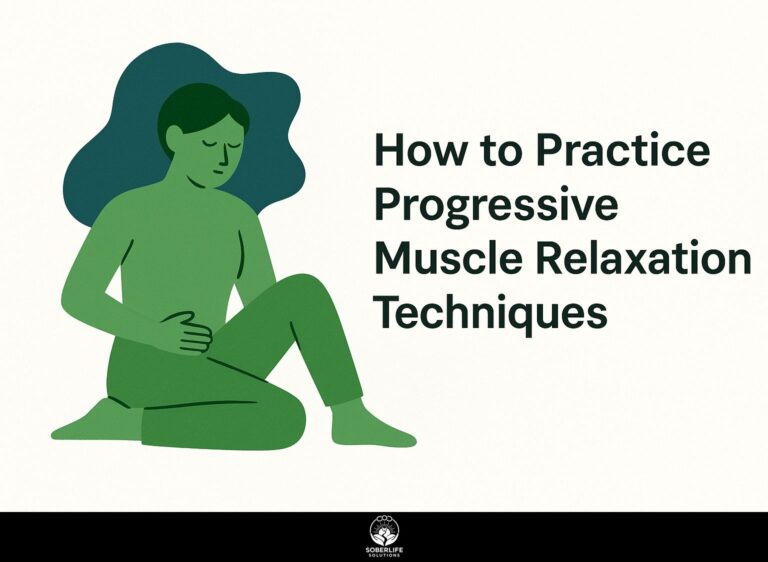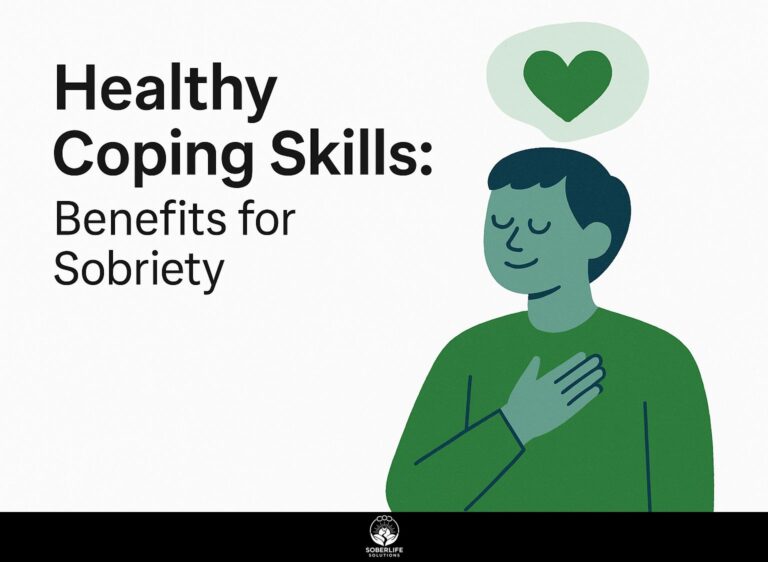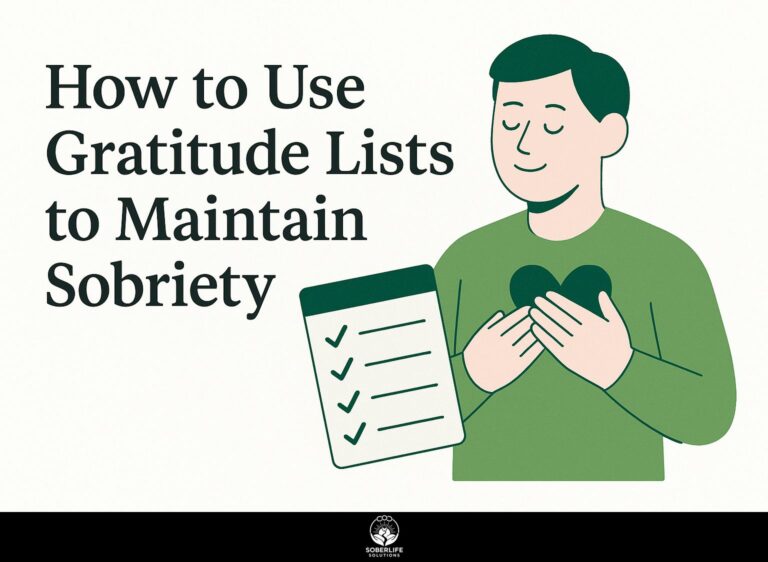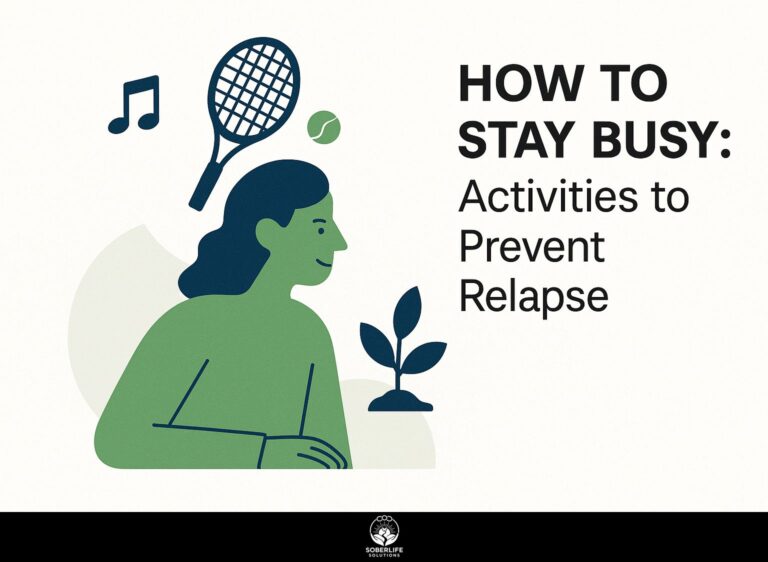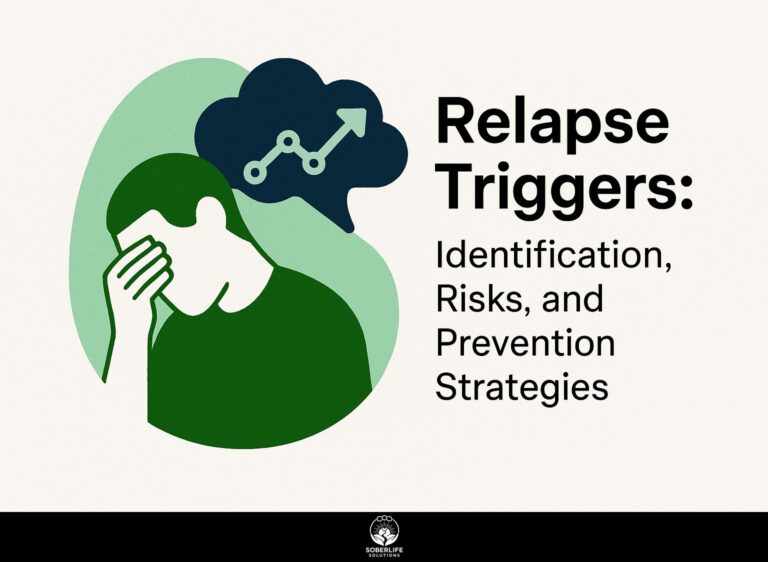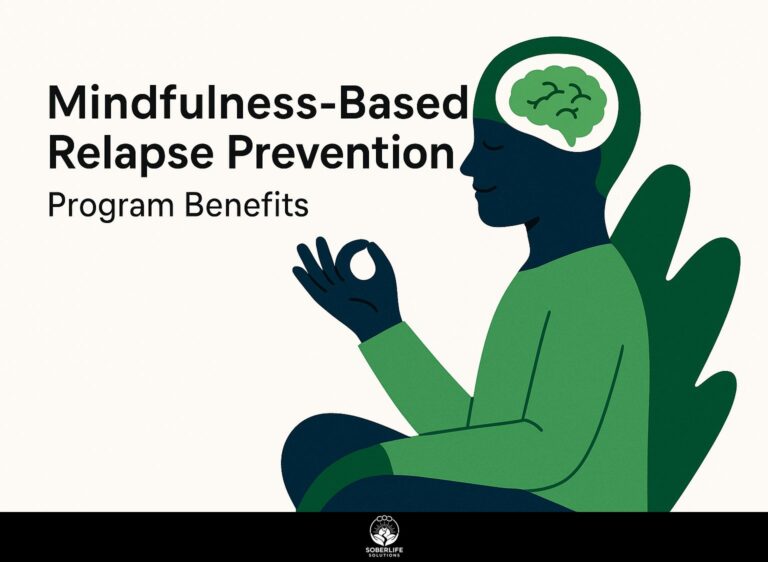Emotional Regulation Techniques for Sobriety
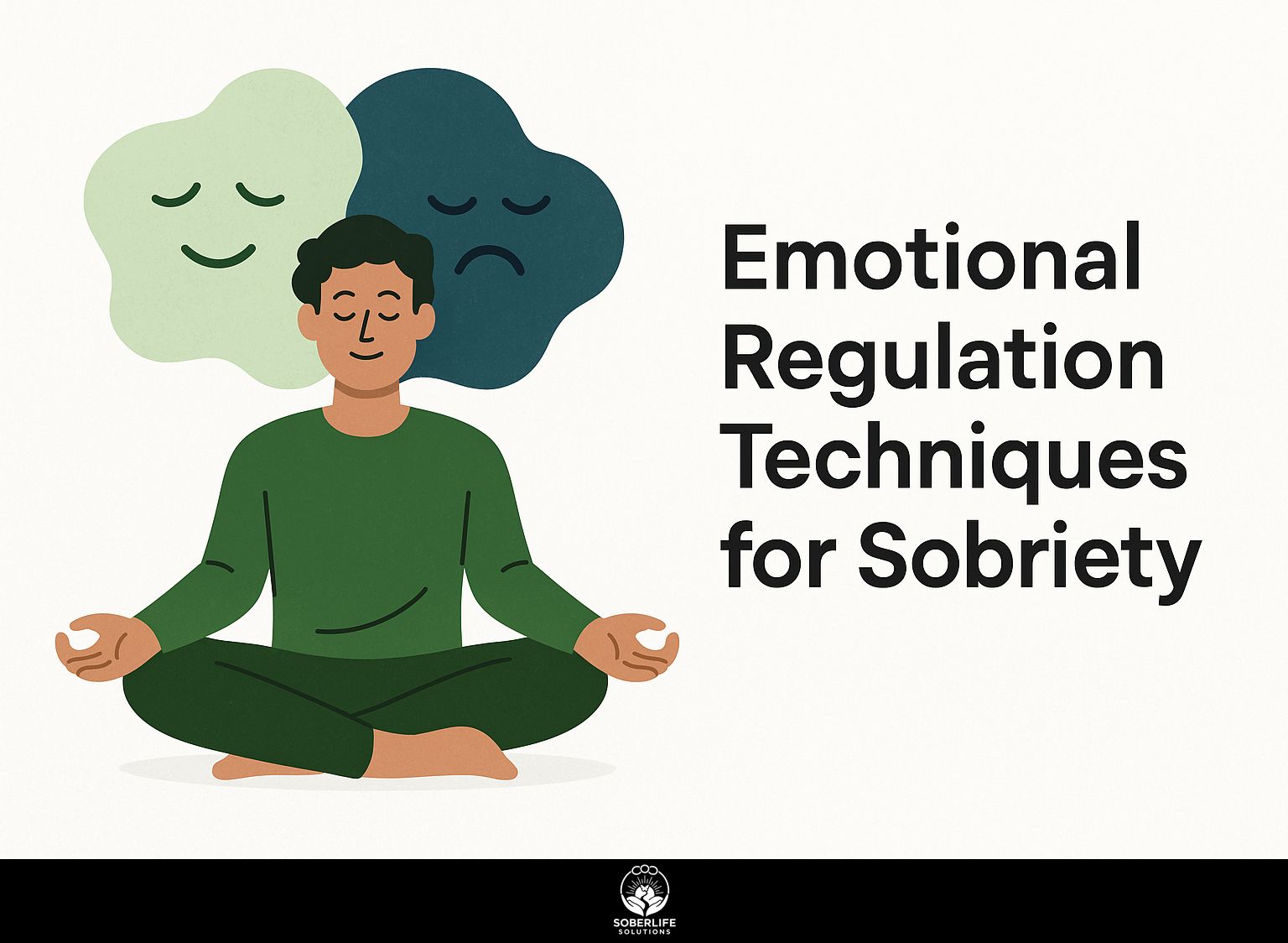
Getting through sobriety means learning to manage emotions, especially for people with substance use issues like alcohol use disorder. Problems with managing emotions can cause problems, so it’s important to use helpful methods. This article looks at key methods, including ideas from cognitive behavioral therapy, to help you handle your emotions and stay on track with your recovery. Learn how these tools can help you achieve long-term sobriety and emotional health.
Key Takeaways:
Importance in Sobriety
Managing emotions is important for staying sober, allowing people to deal with tough situations without using drugs or alcohol.
To improve emotional control, individuals can use specific techniques like mindfulness meditation, cognitive behavioral therapy (CBT), and journaling.
Mindfulness helps maintain present-moment awareness, reducing impulsive reactions; CBT addresses negative thought patterns that may trigger substance use; and journaling allows for reflective emotional processing.
For example, practicing mindfulness for just 10 minutes daily can significantly lower stress levels. According to UCLA Health, mindfulness meditation offers numerous health benefits and is a practical way to reduce cravings and maintain sobriety over time. A study from 2020 found that people who used these strategies had a 30% drop in cravings over several months, showing how effective these methods are for keeping sobriety over time.
Understanding Emotions
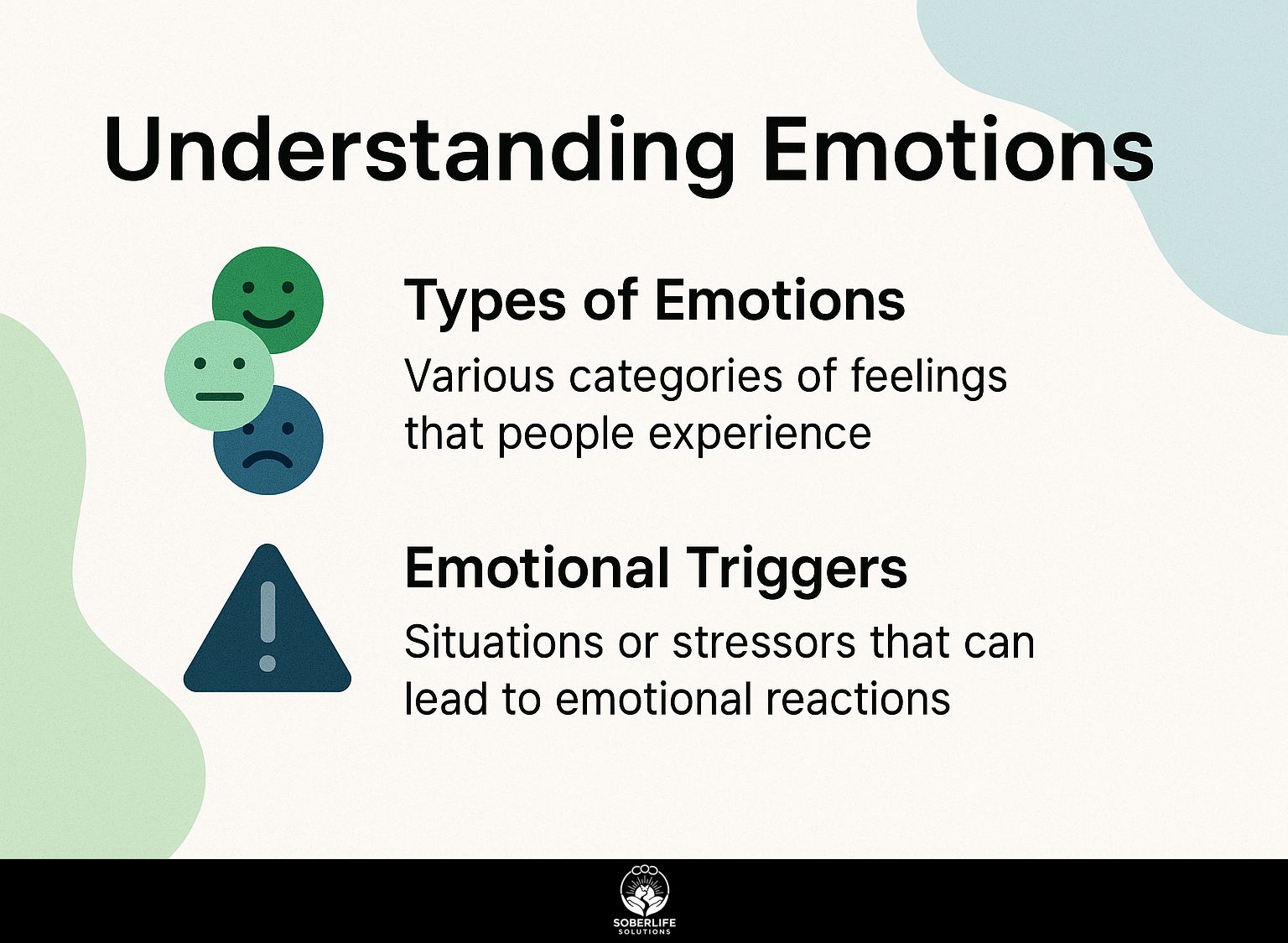
Knowing emotions well is important for controlling them effectively, which can stop the loss of emotional control often found in substance use problems. One of our most insightful strategies for managing stress and emotions provides valuable insights on healthy recovery techniques.
Types of Emotions
Knowing different feelings, such as joy and sadness, can support individuals in recovery to manage their responses effectively.
Positive feelings cover happiness, marked by a feeling of excitement and contentment, and thankfulness, which encourages relationships and valuing others.
In contrast, negative emotions such as anger, marked by feelings of irritation and frustration, can be overwhelming. Mood disorders can affect a person’s ability to notice or manage their emotions.
For instance, someone experiencing depression might struggle to feel joy, hindering their ability to enjoy life’s pleasures.
Engaging in mindfulness practices can help restore emotional balance by promoting greater awareness and acceptance of all emotional states.
Emotional Triggers
Finding out what emotions cause reactions is important to stop sudden actions that might result in substance addiction and going back to old habits.
Common emotional triggers include stress, rejection, boredom, and loneliness.
For instance, a study on recovery programs revealed that a recovering addict who recognized stress as a trigger effectively implemented mindfulness techniques to manage it. By practicing deep breathing or meditation during stressful moments, they significantly reduced their risk of relapse.
Utilizing tools like journaling can also help individuals articulate their feelings and identify patterns, enabling proactive strategies to cope. Insights from ScienceDirect indicate that understanding location-based triggers of cravings can further refine these approaches, helping people change how they see triggers into practical actions for staying sober.
Techniques for Emotional Regulation
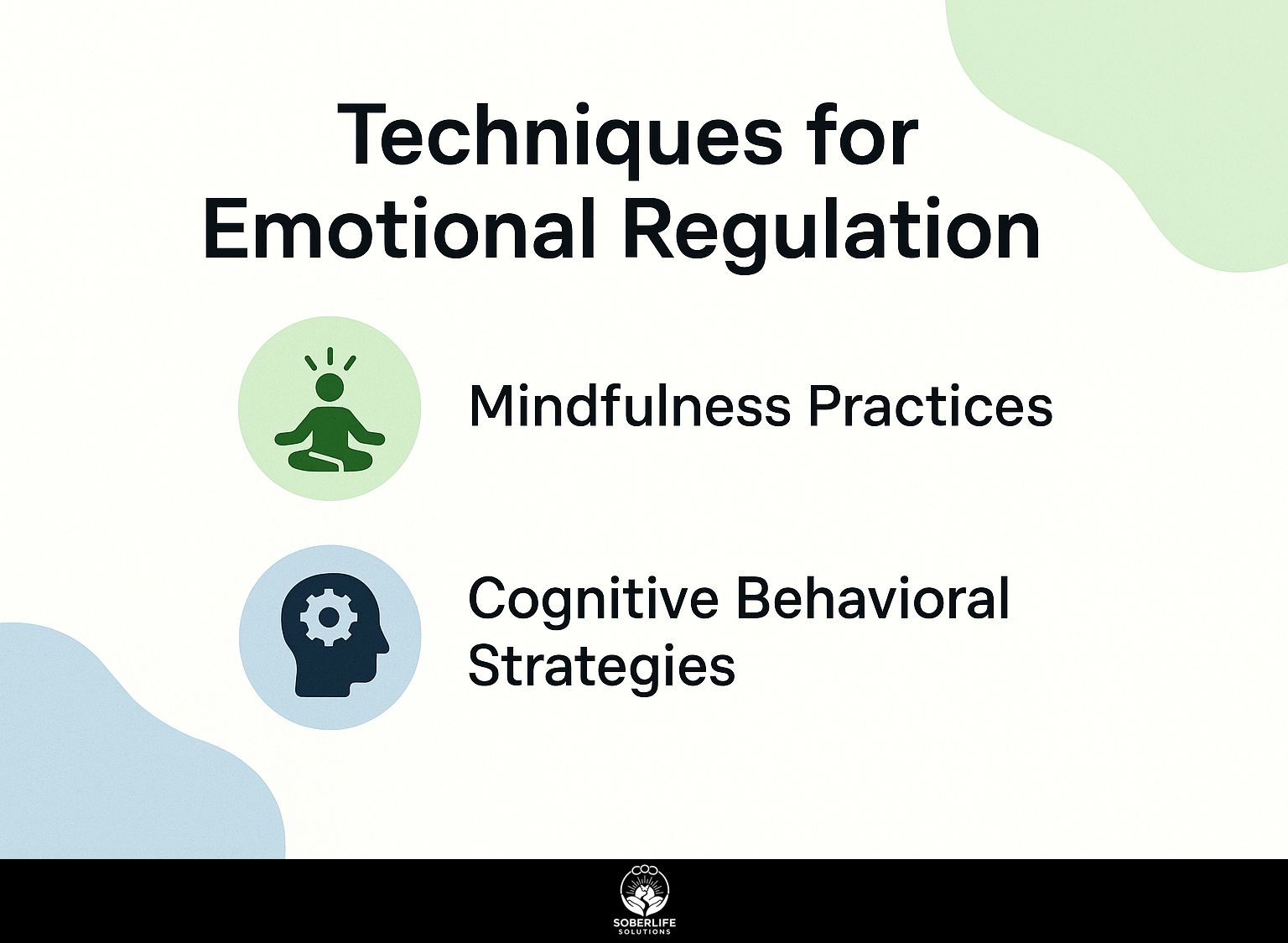
Various methods can help people manage their emotions better, making it simpler for them to deal with their emotional responses effectively. For a deeper understanding of how managing stress and emotions can be vital in recovery, see also: Managing Stress and Emotions: Healthy Strategies in Recovery.
Mindfulness Practices
Practicing mindfulness activities like meditation and grounding methods can greatly improve how we notice and manage our emotions.
Adding mindfulness to your daily activities can be simple. Begin your day with 10 minutes of meditation to improve focus and lower stress.
You might consider using apps like Headspace, which offers guided sessions specifically designed for beginners at $12.99 a month.
For grounding, practice the 5-4-3-2-1 technique: identify five things you see, four you can touch, three sounds you hear, two smells, and one taste.
This exercise can help calm your mind and reduce anxiety when you encounter triggers, promoting a more stable emotional state. As noted by the American Psychological Association, mindfulness meditation is a research-proven method for reducing stress and improving emotional stability, making these techniques highly beneficial.
Cognitive Behavioral Strategies
Cognitive Behavioral Therapy (CBT) methods, such as cognitive reappraisal, are important for changing negative thinking and improving control over emotions.
- Two effective CBT techniques you can apply are journaling and cognitive restructuring.
Journaling helps you identify triggers by encouraging daily reflection on emotions and events, creating awareness of patterns.
To change the way you think, question your negative thoughts by asking, ‘What proof do I have for this thought?’ and ‘Are there different ways to see it?’ You can improve these practices with tools like Moodnotes ($4.99), which tracks your moods and thoughts, providing questions to help you rethink and encourage positive thinking.
Building a Support System
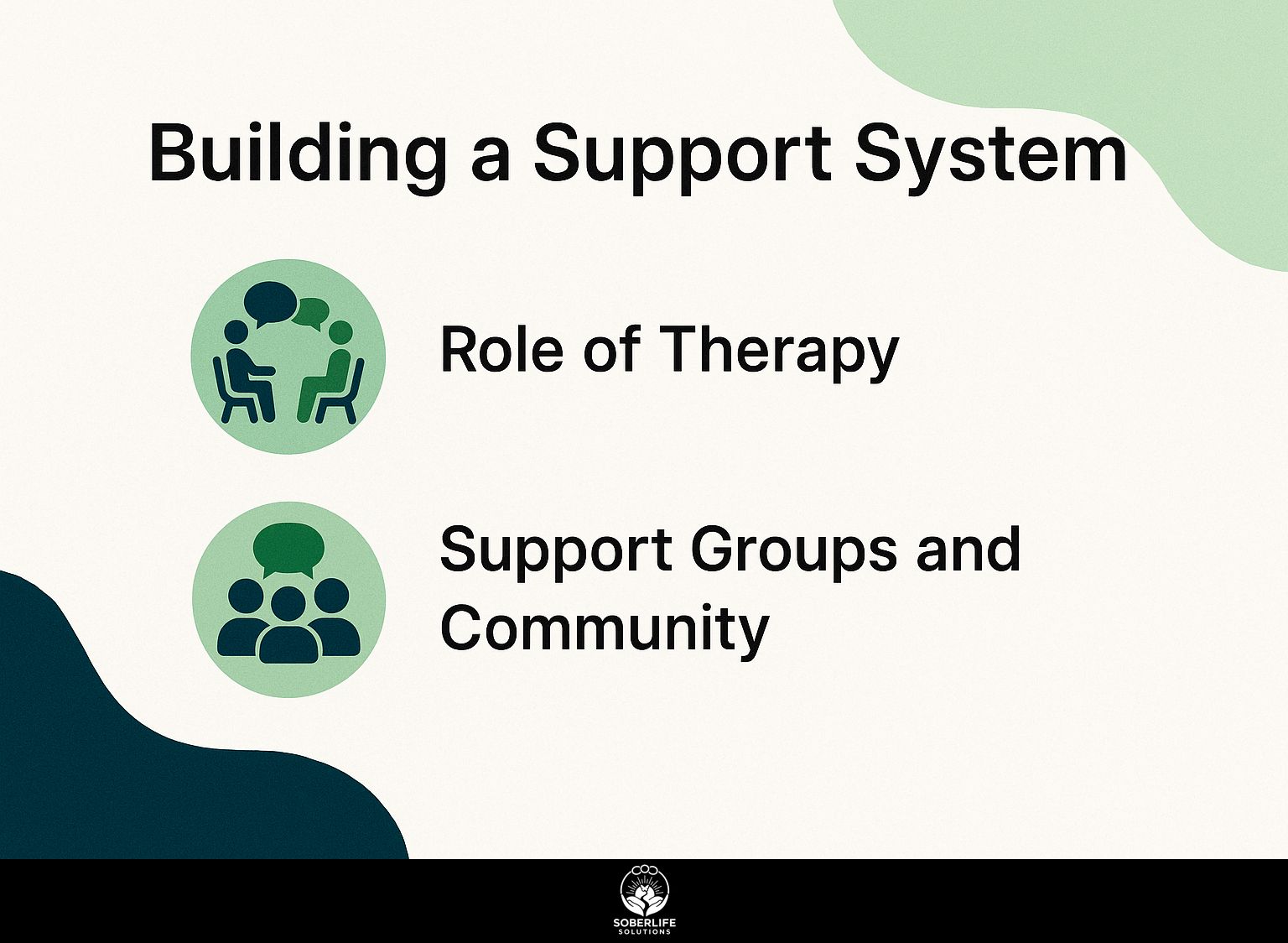
Having a good group of supportive people is important for dealing with feelings and helping someone get better. Building an effective support network (as explored in our guide on family peer support) can be a critical step in the recovery process.
Role of Therapy
Therapy, especially Dialectical Behavior Therapy (DBT), provides people with skills to strengthen emotional resilience and control.
DBT focuses on two essential skills: distress tolerance and emotion regulation.
Distress tolerance skills help people handle tough situations without turning to harmful actions; examples include using grounding methods or sensory distractions.
Emotion regulation strategies, such as identifying and labeling emotions, allow clients to process their feelings without being overwhelmed.
Each session usually costs about $100, so it’s important to find the right choice for your budget and needs.
Practicing these skills daily keeps you emotionally balanced and improves your ability to manage stress.
Support Groups and Community
Joining support groups like Alcoholics Anonymous (AA) provides a strong feeling of community, which is important for emotional help during recovery.
These groups offer common experiences that help members connect and learn about each other. For instance, regular meetings allow individuals to discuss their challenges and victories, cultivating a supportive environment.
Accountability is another critical benefit; partners or sponsors can help set personal goals and check in on progress, enhancing commitment to sobriety. Groups can share effective coping strategies, such as mindfulness techniques or journaling, which have been particularly helpful.
As time passes, people in the group often encourage one another, reminding them they are not alone in their recovery process.
Self-Care Strategies
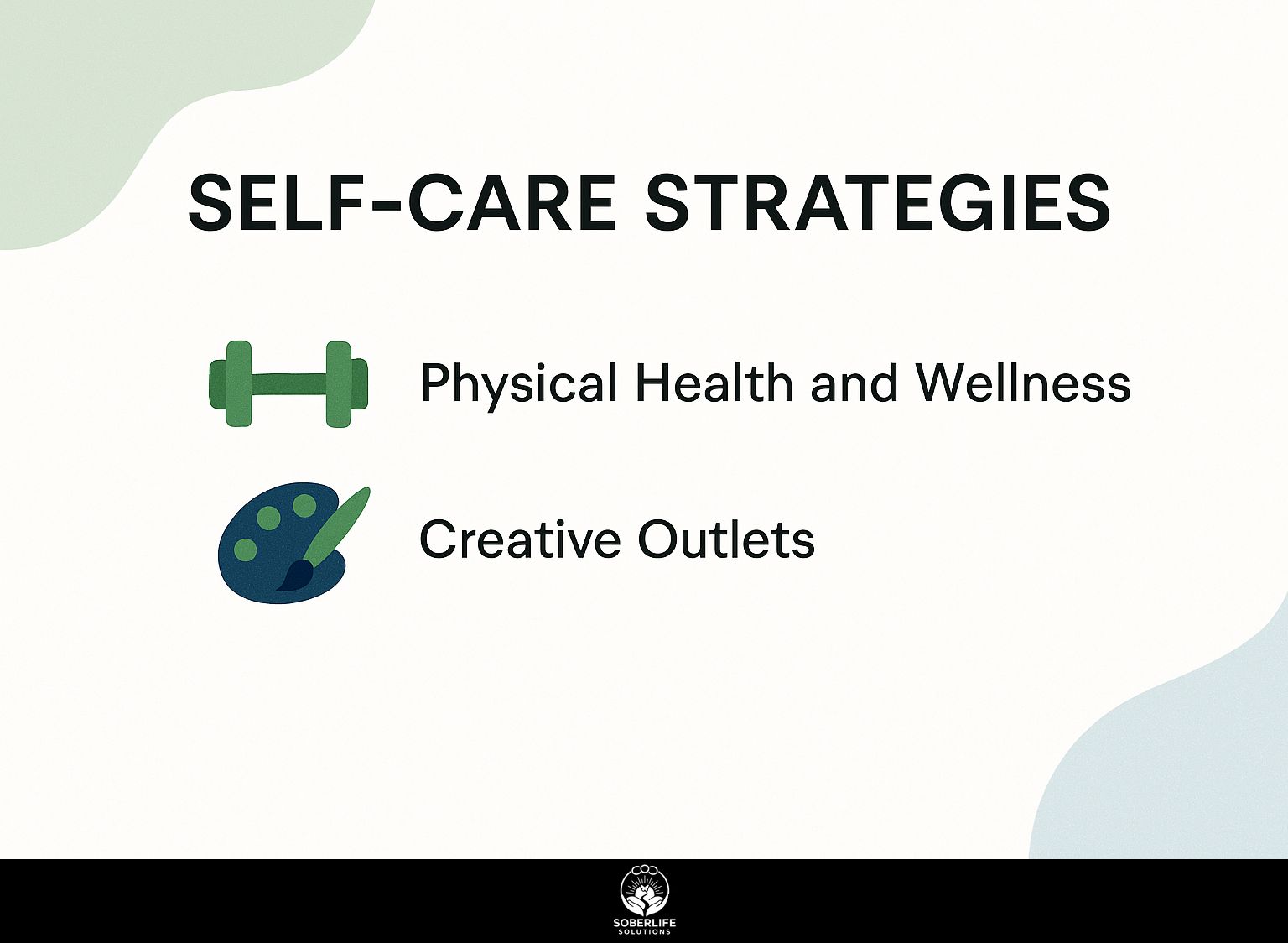
Practical self-care techniques can significantly help in managing emotions and improving health during recovery. If interested, exploring how to manage stress and emotions with healthy strategies can provide further insights into effective recovery practices.
Physical Health and Wellness
Staying physically healthy by exercising regularly and eating well is important for improving emotional control and lowering negative emotions.
To effectively manage your physical health, aim for balanced activities: exercise at least three times a week for 30 minutes.
Consider incorporating strength training using tools like resistance bands or body weight, and complement it with aerobic exercises, such as brisk walking or cycling.
On the nutrition front, focus on incorporating omega-3 fatty acids-found in salmon, walnuts, and flaxseeds-into your meals.
Tracking your intake with apps like MyFitnessPal can also help you maintain a balanced diet while supporting your physical and emotional well-being.
Creative Outlets
Doing creative activities like art can help with therapy and improve how you handle emotions.
To maximize these benefits, consider dedicating time each week to specific activities. For example, spend two hours each week painting or drawing to develop mindfulness and express yourself.
Write or journal every day to better handle your emotions and thoughts. Skillshare and other online platforms offer various courses in these subjects, with prices starting at $19 per month, allowing you to learn new skills easily.
By diversifying your creative pursuits, you can create a balanced approach to emotional well-being.
Frequently Asked Questions
What are emotional regulation techniques and how can they help with sobriety?
Emotional regulation techniques are strategies that can help individuals better manage and cope with their emotions. These methods can be very useful for people recovering from substance abuse. They help maintain sobriety by encouraging better ways to handle stress and lowering the chance of falling back into old habits.
What are some common emotional regulation techniques for sobriety?
Techniques to manage emotions when sober include deep breathing, being present in the moment, writing in a journal, taking care of oneself, getting support from others, and recognizing and questioning negative thoughts.
How can deep breathing exercises help with emotional regulation in sobriety?
Deep breathing exercises can help individuals regulate their emotions by calming the body and mind. This can be particularly beneficial for those in recovery from substance abuse, as it can reduce stress, anxiety, and other triggers that may lead to relapse.
Why is practicing self-care important for emotional regulation in sobriety?
Practicing self-care is important for emotional regulation in sobriety because it allows individuals to prioritize their well-being and address any underlying emotional issues. This can help prevent the use of substances as a means of coping and promote healthier ways of managing emotions.
How can getting help from others help people who are trying to stay sober manage their emotions?
Getting help from people like therapists, support groups, or trusted friends and family can give individuals a reliable support network. This can help individuals in recovery from substance abuse feel less isolated and better equipped to manage their emotions in healthy ways.
How can learning to identify and challenge negative thought patterns be beneficial for emotional regulation in sobriety?
Negative thought patterns can be a major obstacle to emotional regulation in sobriety. Learning to identify and challenge these patterns can help individuals recognize and control their emotions, leading to healthier coping mechanisms and reducing the risk of relapse.

